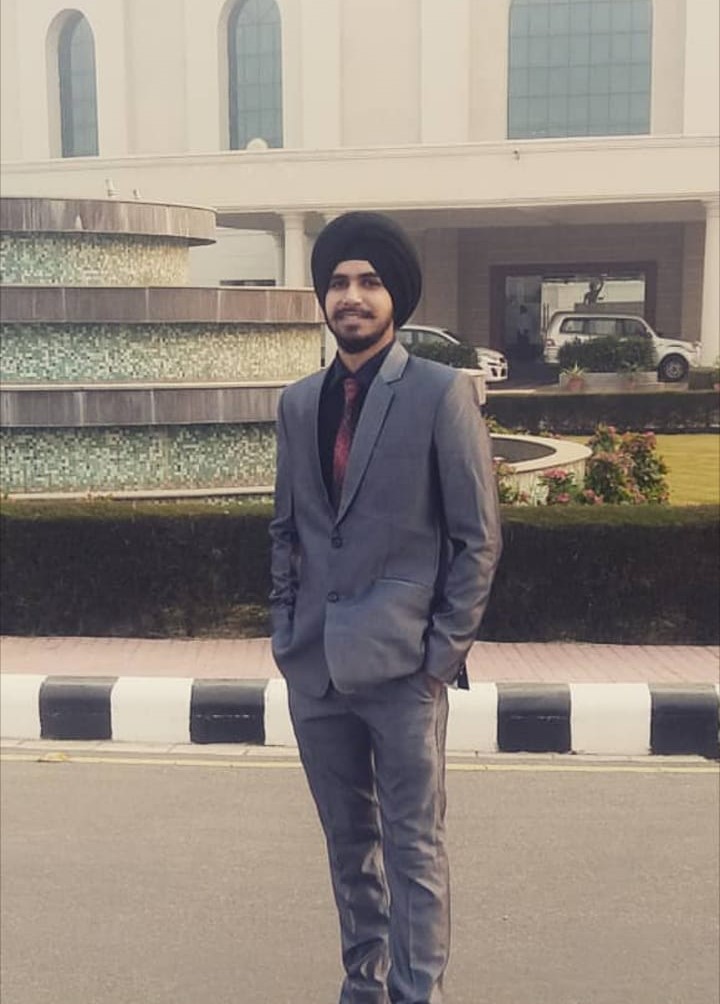Mr. Govind has now been writing and contributing to various blogs and law review journals for a long time. He is an ace quizzer and has been a Title Young Member at International Council for Commercial Arbitration at Hague, Netherlands for more than an year. Here is his interview with Desi Kaanoon.
Q 1.) How has NALSAR contributed to your overall intellectual and academic development?
A 1.) From facing technical glitches in my 2018 CLAT attempt to decide to take CLAT again in 2019 with just 3 months left; my journey to NALSAR has been a roller-coaster ride. The feeling to have finally achieved it was surreal. NALSAR has contributed immensely to my overall development. A few major highlights were winning the elections for the role of Moot Court Committee Representative, Publishing my first academic article in an ISBN book, interning at the Supreme Court and representing NALSAR in a national Moot as well as in NLSIU’s sports fest. All of this came true because of the competitive environment at NALSAR, which pushes you to strive for the best every day. The professors encourage independent thoughts and discussion in classrooms, which develops the critical thinking skills a good lawyer needs. NALSAR helps you evolve into your best version.
Q 2.) Your record of accomplishment echoes that you are specifically interested in Alternative Dispute Resolution litigation. What do you find so fascinating about the relatively new field?
A 2.) ADR being a new and upcoming field has always intrigued me. I believe it is the future of Indian’s dispute resolution mechanism. Being time efficient, effective and transparent gives it an edge over litigation and has an immense potential to reform the Indian legal system. ADR also helps a law student develop mediating and negotiating skills that separates a brilliant lawyer from an average lawyer.
Q 3.) How important is it to diversify your areas of interest and work in new fields in a law school career?
A 3.) Law being a 5-year long professional course gives you plethora of time and opportunities to understand your interests. It is important to explore various new fields to find out which area(s) of law you resonate with. This should be done through internships, Moot Court competitions, writing academic articles and papers, attending seminars and workshops, undertaking online courses. All these activities help you progress towards your niche interests and help you understand what you wish to pursue after the course. ‘All study and no law school activities makes Jack a dull lawyer’.
Q 4.) How was your experience interning at the Supreme Court of India and what were your takeaways from this internship?
A 4.) The experience of interning at the Supreme Court of India was incredible and highly enriching. The grandeur of the place stupefies you initially. I interned with Advocate Pushkar Sharma who was an excellent mentor. Working at the apex court requires you to be absolutely diligent and dedicated as a minor error can cause major consequences. One needs to be a quick learner to keep up with the pace at which things work at the Supreme Court. My internship entailed extensive research work, drafting legal documents (SLPs, arbitration petitions, writ petitions and legal notices), case study analyses and a brief study of some relevant statutes. I was also fortunate enough to witness the court proceedings as well as some mediation sessions at the Supreme Court. Such internships help you understand the practical aspects of law, which are not taught in law school. Apart from that, they give a major boost to your drafting, researching and communicating skills to prepare you for the real world after law school ends. Overall, the internship was an amazing learning experience.
Q 5.) How imperative are Parliamentary Debates, MUNs, Moots, ADR competitions for furthering a complete ecosystem for overall development of an individual?
A 5.) Activities like Moots, ADRs, PDs and MUNs transform and hone your personality, not only as an upcoming lawyer, but also as an individual. The skills and virtues you acquire through these competitions stay with you throughout life. They are an indispensable way to develop your soft skills and temperament. A good Moot or MUN makes you understand values like patience, teamwork and perseverance. The ADRs and PDs help you instill adaptability and improvisation skills. These competitions prepare you for the bigger challenges in life by equipping you with the right skills, approach and outlook. One should not leave any chance to capitalize on these activities to the fullest.
Previous post: https://desikanoon.in/equal-pay-for-equal-work-where-does-it-fall-through/

